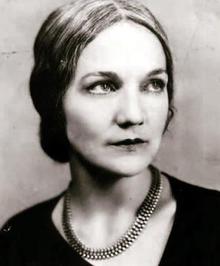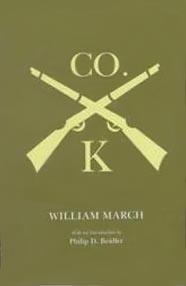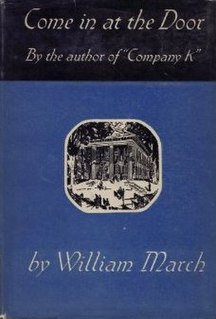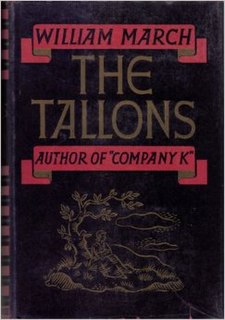 First edition | |
| Author | William March |
|---|---|
| Country | United States |
| Language | English |
| Publisher | Harcourt, Brace and Company |
Publication date | 1945 |
| Media type | Print (hardback & paperback) |
| Pages | 506 pp |
| Preceded by | The Looking-Glass (1943) |
| Followed by | October Island (1952) |
Trial Balance: The Collected Short Stories of William March is a collection of short stories by American author William March, first published in 1945 by Harcourt, Brace and Company. The 55 stories span almost the entirety of March's entire career until then, from 1929 to 1945.

A short story is a piece of prose fiction that typically can be read in one sitting and focuses on a self-contained incident or series of linked incidents, with the intent of evoking a "single effect" or mood, however there are many exceptions to this.

William March was an American writer of psychological fiction and a highly decorated US Marine. The author of six novels and four short-story collections, March was praised by critics but never attained great popularity.
Harcourt was a United States publishing firm with a long history of publishing fiction and nonfiction for adults and children. The company was last based in San Diego, California, with editorial/sales/marketing/rights offices in New York City and Orlando, Florida, and was known at different stages in its history as Harcourt Brace, & Co. and Harcourt Brace Jovanovich. From 1919 to 1982, it was based in New York City.
Reviews were plentiful and positive; Roy S. Simmonds lists 31 reviews in his William March: An Annotated Checklist. [1] Among the more notable reviewers are Alistair Cooke, who, in his review of the book in The New Republic , famously claimed that March "is understandably the most underrated of all contemporary American writers of fiction." [2] Marjorie Farber, in The Kenyon Review , claims to be "greatly under the spell of William March" and states that the collection presents an "astonishing...variety of quiet desperation and low misery and high comedy." [3]
Roy S. Simmonds was an English literary scholar and critic best known for his biographies on John Steinbeck, William March and Edward O'Brien.

Alistair Cooke was a British writer whose work as a journalist, television personality and radio broadcaster was done primarily in the United States. Outside his journalistic output, which included Letter from America and America: A Personal History of the United States, he was well known in the United States as the host of PBS Masterpiece Theatre from 1971 to 1992. After holding the job for 22 years, and having worked in television for 42 years, Cooke retired in 1992, although he continued to present Letter from America until shortly before his death. He was the father of author and folk singer John Byrne Cooke.

The New Republic is an American magazine of commentary on politics and the arts, published since 1914, with influence on American political and cultural thinking. Founded in 1914 by leaders of the progressive movement, it attempted to find a balance between a humanitarian progressivism and an intellectual scientism, and ultimately discarded the latter. Through the 1980s and '90s, the magazine incorporated elements of "Third Way" neoliberalism and conservatism.
The collection was republished twice: in 1970 by Greenwood, and in 1987 by the University of Alabama Press, with an introduction by Rosemary M. Canfield-Reisman. It is not currently in print.
The University of Alabama Press is a university press founded in 1945 and is the scholarly publishing arm of the University of Alabama. An editorial board composed of representatives from all doctoral degree granting public universities within Alabama oversees the publishing program. Projects are selected that support, extend, and preserve academic research. The Press also publishes books that foster an understanding of the history and culture of this state and region. The Press strives to publish works in a wide variety of formats such as print, electronic, and on-demand technologies to ensure that the works are widely available.














